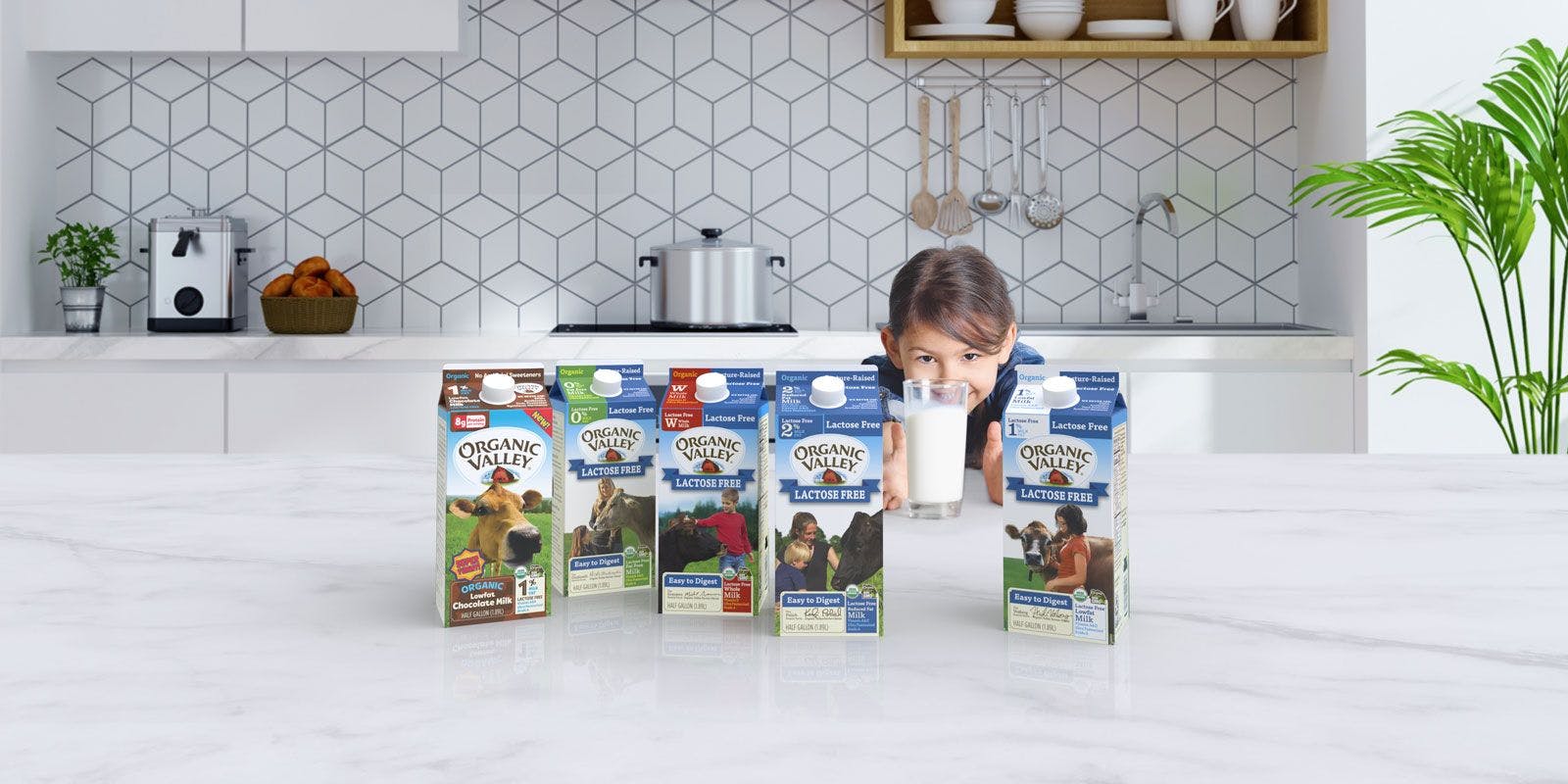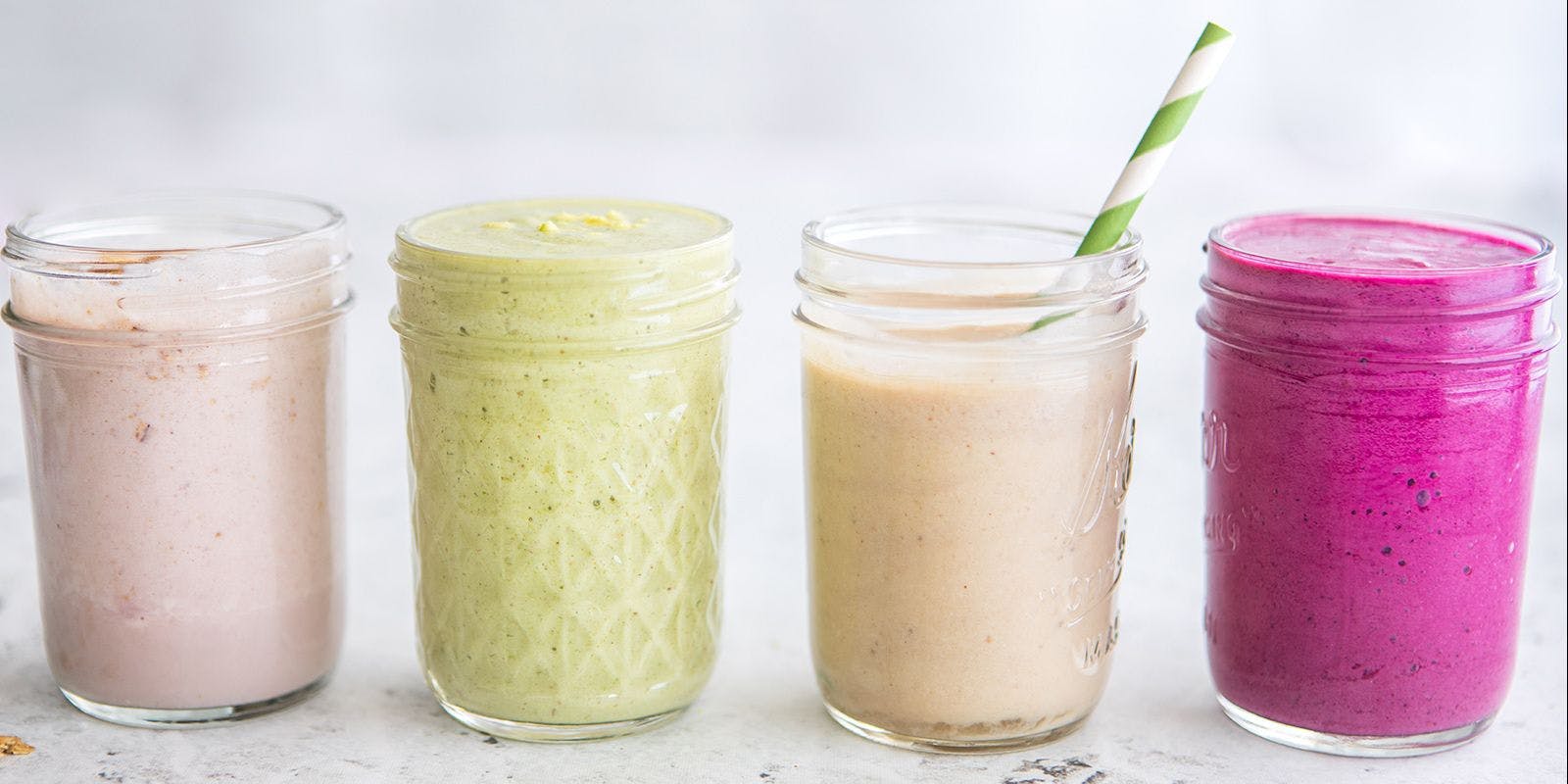
Food
Why the 12 Essential Nutrients in Milk Matter for Kids
As parents, we try our best to get our children to eat nutritious food to support their growing and developing bodies. Try is the operative word, right? As a registered dietitian and mom, I know all too well that most kids are not meeting all of their nutritional needs through their diets.
We all know that offering better-for-you foods to our children is important. But the beverage choices we offer can have an equal impact on our kids’ health.
From juices to sodas, the drink options for children seem endless. While beverages like calorie-free flavored waters and 100% fruit juices sound positive and may appear to fit in a well-balanced diet, experts including the American Academy of Pediatrics (AAP) agree that the best beverage choices for children aged 1 to 5 years old are simply water and milk.
The Nutritional Benefits of Milk Cannot Be Matched
No other beverage contains such a wide array of essential nutrients. Most plant-based beverages are not nutritionally equivalent to cow's milk and could lack important nutrients. Juice is often high in sugar and does not contain the important mix of macronutrients (carbohydrate, protein, and fat) and micronutrients (vitamins and minerals) that children need. While certain juices do offer some nutrition, they should be limited in a child’s diet as overconsumption is linked to obesity and liver issues.
Plus, studies show that taking in lactose, the natural sugar found in milk, helps the body absorb bone-building calcium.
Milk is such an important part of a child’s balanced diet that the AAP recommends children aged 12 to 24 months consume two to three glasses per day, and children aged 3 to 5 years old drink two to two-and-a-half glasses per day to meet their unique nutritional needs. Even if a child is otherwise eating a balanced diet, eliminating dairy milk opens kids up to having nutritional gaps that could have long-term effects on their health. What’s more, only milk and water are endorsed for children by the AAP.
Learn more: Why children should drink milk, water, and not much else.
12 essential nutrients can all be found naturally in milk. Let’s dig into what they do!

Which essential nutrients for children are found in cow’s milk?
Many people automatically think of calcium as the main benefit of drinking cow’s milk, but this liquid is so much more than a vessel for this popular bone-building mineral. Along with being a natural source of protein, carbohydrates, and sometimes fat, milk also provides 12 essential nutrients — something few other foods can offer all on their own:
CALCIUM helps build and maintain strong bones and teeth while reducing the risk of developing fractures and osteoporosis later in life. Children who avoid drinking cow’s milk and do not supplement with calcium are at increased risk for bone fractures before they reach puberty. Increasing peak bone mass by consuming enough calcium during childhood has been thought to be an important way to reduce the risk of osteoporosis in later adulthood.
PROTEIN is key for a child’s growth and development. It helps build strong muscles and, in some cases, can provide energy.
VITAMIN D aids the body in absorbing calcium to build and maintain strong bones and teeth. It may also help fight inflammation and support a healthy immune system.
PHOSPHORUS works with calcium and vitamin D to help keep bones strong. It also plays a role in making energy and helps maintain a regular heartbeat.
VITAMIN B12 helps the body build red blood cells and support the central nervous system.
RIBOFLAVIN plays a role in transforming food into energy and helps the body build red blood cells.
NIACIN converts nutrients into energy. It also acts as an antioxidant.
PANTOTHENIC ACID plays a role in making red blood cells and in breaking food down into energy.
VITAMIN A supports growing bodies and is important for vision, healthy skin, and a healthy immune system. It helps organs like the heart and kidneys function properly.
IODINE helps the thyroid gland do its job, and taking in enough of this nutrient supports a child’s mental development.
SELENIUM is an antioxidant that helps cells in the body combat oxidative stress caused by everyday things like pollution and stress. It also helps support heart health in both kids and adults.
ZINC is a key nutrient for immune support. It is also a nutrient that helps kids grow.

Can these nutrient needs be met without drinking milk?
Children can certainly get the important nutrients found in milk by eating other foods — almonds for calcium, fish for vitamin D, and eggs for riboflavin, for example. But a glass or two of cold, fresh milk, whether white or chocolate, puts all those nutrients right in one glass.
Knowing that many children fall into the picky eater category, we can assume that there are nutrition gaps in their diets, and offering milk alongside their meals or snacks is a simple and tasty way to fill some of those holes.
Key Takeaways
Finding a beverage that contains high-quality protein, nine essential vitamins and minerals, and that also tastes good is a parent’s dream come true. Milk checks so many boxes when it comes to pediatric nutrition that it should be a part of a child’s healthy diet, especially in place of other beverages like juice or soda.
To bump up the nutritional benefits of your child’s milk even more, choosing organic milk can offer some unique features:
- Since organic milk comes from grass-fed cows, it contains higher levels of beneficial fatty acids that can only be attributed to the cows’ fresh pasture diet.
- Organic milk is produced without toxic synthetic pesticides, added hormones, antibiotics, or GMOs.
- Although not nutrition-related, families can feel good knowing that the milk they are choosing supports a good lifestyle for animals and farmers.
Including two to three glasses of milk in your child’s diet every day can fill nutrition gaps, limit added sugar consumption, and ease concerns knowing that you are following recommendations from the AAP.
So the next time your kids start begging for a glass of juice or other sweet beverage, offer a glass of nutrient-rich and amazingly delicious milk (maybe chocolate milk for a treat!) instead to make sure they’re getting the nutrition they need during these precious and formative years.
Lauren Manaker is an award-winning registered dietitian and book author. After spending over 15 years working in health care and industry, she started a consulting business focusing on reproductive, pediatric and women’s health. Lauren resides in Charleston, South Carolina, with her husband and young daughter. In her spare time, she can be found enjoying an outdoor oyster roast in the cooler months, doing anything on the water in the warmer months, and practicing yoga year-round.
Related Articles
- Tags:
- organic nutrition,
- children,
- high quality products



















